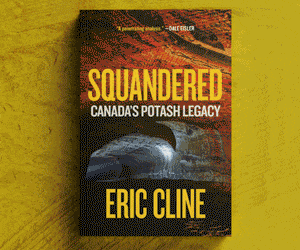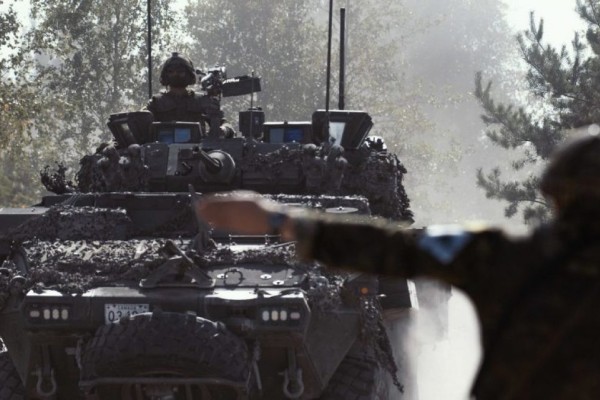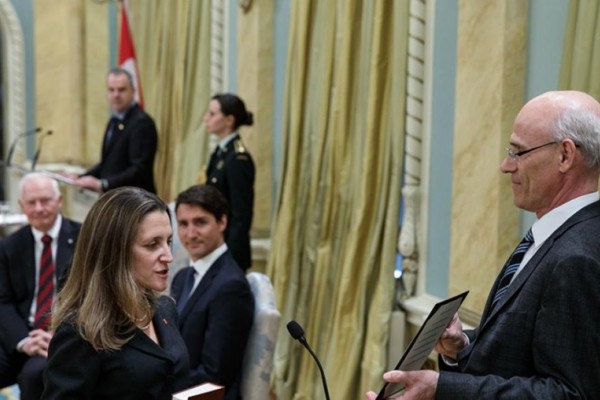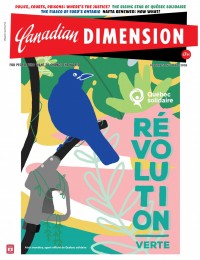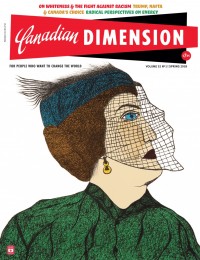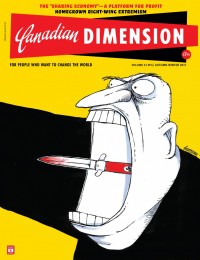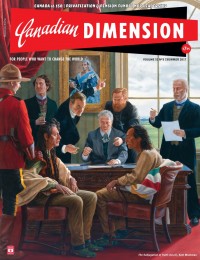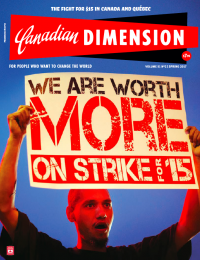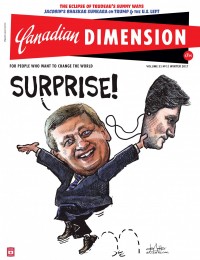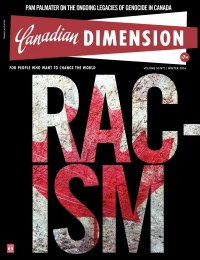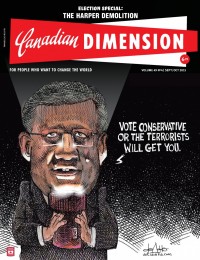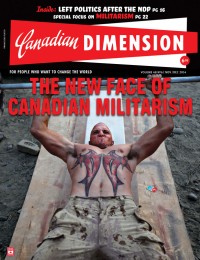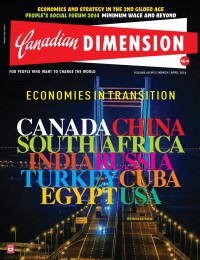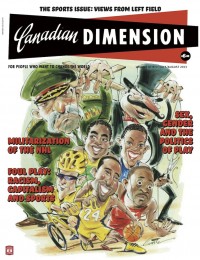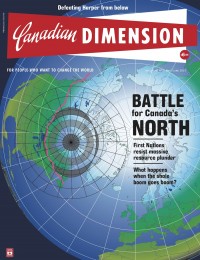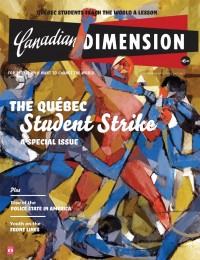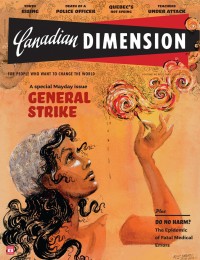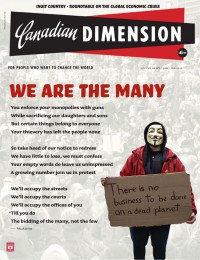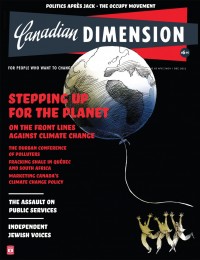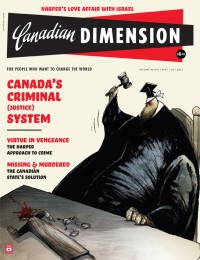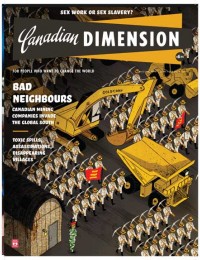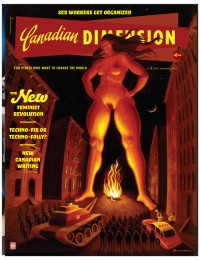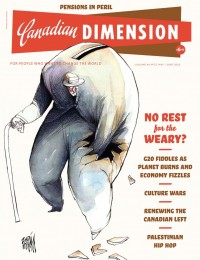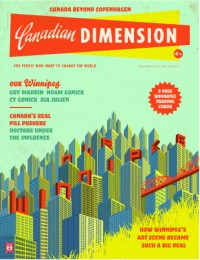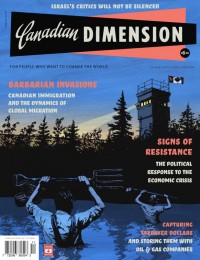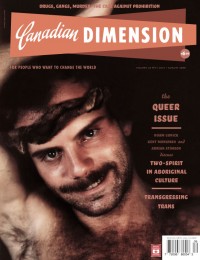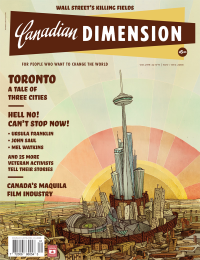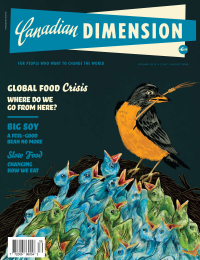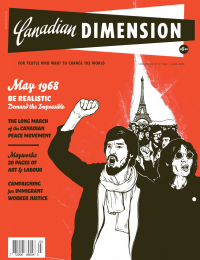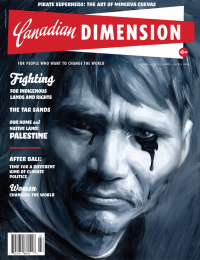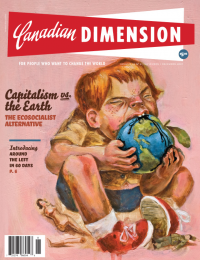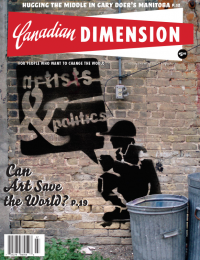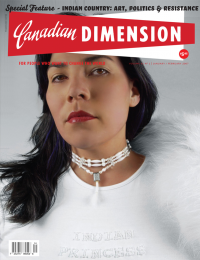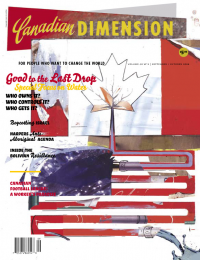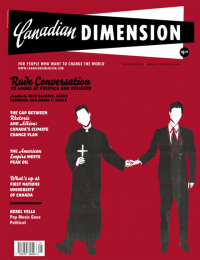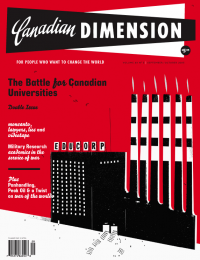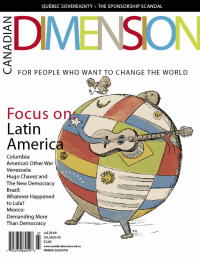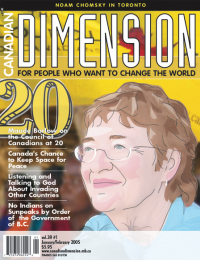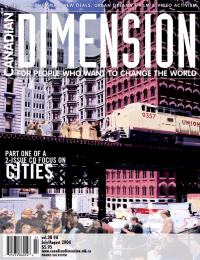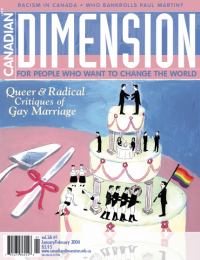Why isn’t Canadian media condemning Nazi collaborator Roman Shukhevych?
Shukhevych was a perpetrator of the Holocaust who participated in the genocide of 100,000 Polish and Jewish people

The Roman Shukhevych statue at the Ukrainian Youth Unity Complex in Edmonton. Photo courtesy CTV News.
Last year, a statue in Edmonton honouring Roman Shukhevych, a Nazi collaborator and a perpetrator of the Holocaust who participated in the genocide of 100,000 Polish and Jewish people, was vandalized. In August 2021, somebody painted the words “ACTUAL NAZI” over the bust of Shukhevych, who in addition to taking senior roles in the ultranationalist Ukrainian Insurgent Army (UPA) and Organization of Ukrainian Nationalists (OUN) also helped organize and lead the Nazi army’s Nachtigall Batallion and the Schutzmannschaft Battalion 201.
Even Yale professor Timothy Snyder, a vocal supporter of Ukrainian nationalism and a proponent of the anti-communist “double genocide” theory of the Second World War, has asserted that the organizations to which Shukhevych belonged participated in genocide in order to support their vision of a “totalistic” form of Ukrainian statehood in which the new Ukraine “required ethnic homogeneity, and the Polish ‘occupier’ could be defeated only by the removal of Poles from Ukrainian land.”
As Snyder writes, the OUN-B’s actions in Poland were “not military operations but ethnic cleansing.” The UPA also participated in these pogroms. Snyder writes:
Ukrainian partisans and their allies burned homes, shot or forced back inside those who tried to flee, and used sickles and pitchforks to kill those they captured outside. Churches full of worshipers were burned to the ground. Partisans displayed beheaded, crucified, dismembered, or disemboweled bodies, to encourage remaining Poles to flee.
In Canada, there are still numerous statues honouring Nazi collaborators like Shukhevych. One of them, a cenotaph to a Ukrainian volunteer division of the Waffen-SS in Oakville, Ontario, was also vandalized in June 2020 with the words “Nazi war monument.” Disturbingly, Ontario police announced that they were investigating the attack as a “hate crime” because, in a spokesman’s words, “the graffiti appeared to target an identifiable group.” After news coverage of the police labelling anti-Nazi graffiti a hate crime began to spread, the police apologized and reclassified the graffiti as simple vandalism.
In Ukraine itself, statues honouring Shukhevych have been a source of tension both domestically and internationally. Allied and enemy governments alike have contested the continued existence of these monuments. While the Russian state has doubtlessly emphasized their presence in order to justify its invasion of Ukraine, both the Israeli and Polish ambassadors also protested the construction of a statue honouring Shukhevych in the Ukrainian city of Ivano-Frankisvsk. After its construction, the Israeli and Polish ambassadors issued a joint letter noting that Shukhevych was “personally responsible” for killing tens of thousands “by bullets, fire, rape, torture and other beastly methods—only because they prayed to God in Polish or Hebrew.”
The monuments in Canada have faced similar pushback. One group that has called for the removal of the Shukhevych state is the Friends of Simon Wiesenthal Center (FSWC). In August 2021, the FSWC endorsed the removal of all statues honouring Nazi collaborators in Canada, singling out the Shukhevych bust in Edmonton and the SS-Galicia division cenotaph in Oakville. The organization wrote: “One [example] is a statue of Roman Shukhevych, a Ukrainian military leader who collaborated with the Nazis and whose units massacred Jews and Poles between 1941-1944. The second is a memorial to the ‘freedom fighters’ of the SS’ 14th Waffen Division, who carried out massacres of women and children.”
For some reason, the CTV article that quotes the FSWC’s condemnation of the statues feels the need to “play both sides.” It includes a quote from the Ukrainian Catholic Eparchy, the group that erected the Shukhevych statue, stating the vandalism is “part of the decades long Russian disinformation campaign against Ukraine and Ukrainians to create a false Nazi image of Ukrainian freedom fighters.”
In late October of this year, Edmonton police revealed that they were charging Duncan Kinney of Progress Alberta with the vandalism of the Shukhevych statue. He was handcuffed in his office by the Edmonton police’s hate crimes unit and charged with one count of mischief in connection to vandalism. Canadian media has mainly focused on the allegation that Kinney himself, a journalist whose organization had previously covered the vandalism of monuments to Nazi collaborators, has been charged with the crime rather than the fact that statues honouring Nazi collaborators are standing in Canada in the first place.
In fact, recent Canadian news coverage of this incident has been shockingly quiet on Shukhevych’s actual actions. A November 2 piece in CTV News does not mention Shukhevych’s name until the twelfth paragraph, and it does not reference his role in the Second World War at all except to quote the Ukrainian Catholic Eparchy:
The Ukrainian Catholic Eparchy—which says it erected the Shukhevych statue in the 1970s to honour veterans who fought for Ukraine’s independence in the Second World War—has dismissed accusations that Shukhevych collaborated with Nazi Germany and was involved in massacres of Jewish and Polish people as “Russian disinformation.”
While this is perhaps the most egregious example of Holocaust revisionism to appear in mainstream Canadian media in relation to this story, other CTV and CBC articles fall into a similar pattern: they frontload the article with paragraphs on Kinney and the accusations against him, before briefly mentioning Shukhevych and noting his “controversial” role in history.
For example, a CBC article from October 25 claims that Shukhevych has “fallen under increased scrutiny” in recent years. A CTV News article from October 26 notes: “While Shukhevych is celebrated by some as a Ukrainian military leader, he is also criticized by others as being involved in massacres of Jewish and Polish people.”
Why is Canadian media using the passive voice to describe Shukhevych’s actions rather than calling them what they were: the genocidal actions of a Nazi collaborator who led fascist forces against ethnic minorities and partisan resistors?
When presented as clearly as this, it is hard to imagine most Canadians would take issue with the vandalism or outright removal of these monuments.
Owen Schalk is a writer based in Winnipeg. He is primarily interested in applying theories of imperialism, neocolonialism, and underdevelopment to global capitalism and Canada’s role therein. Visit his website at www.owenschalk.com.



